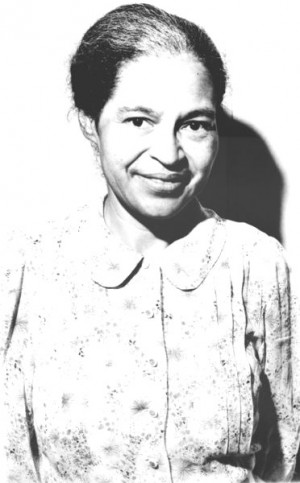

Rosa was a person who was above reproach, and people could not find fault with her character.Ī group was formed and 35,000 handbills were distributed calling for a boycott * of the buses. She was not the first black person to refuse to move on a bus, but when the event happened to her, civil rights * leaders knew they had found someone to champion their cause. She was tired of being humiliated * and treated unfairly. She didn't plan the incident, but when it happened, she decided to stand up for her rights. A police officer came, arrested her and took her to jail. On Decemafter a hard day at work, Rosa was riding the bus home when the driver asked her and three black men to move to make more room in the white section. If the bus filled up with people, the driver would ask a black person to move so he could reposition the movable sign which divided the black and white sections. Sometimes the bus driver just drove off and left them before they could get back on at the back door.

If white people were already sitting in the front of the bus, the black person had to pay the fare, get off the bus, and reenter at the back door. To get to work she rode the bus.īlack people could not sit just anywhere they wanted in the bus. * It was very tiring sitting at a sewing machine and sewing all day.

They were active in the National Association for the Advancement of Colored People, the NAACP (pronounced "N double A C P"). She married Raymond Parks, who was a barber. She attended college, but had to drop out to care for her grandmother who became ill. Rosa remembered living in fear when she was a child as a result of the insults and prejudices against people of her race. Her training there helped to shape her views which would guide her later in life.ĭuring this time in America blacks did not enjoy the rights they have today. Her mother, Leona, homeschooled her until she was eleven, then she attended a private school the Montgomery Industrial School for Girls.

Her parents separated when she was two years old, and she with her mother and brother moved to her grandparents' farm. Her father was a carpenter and her mother was a teacher. When Rosa Parks was born, she was named Rosa Louise by her parents.


 0 kommentar(er)
0 kommentar(er)
